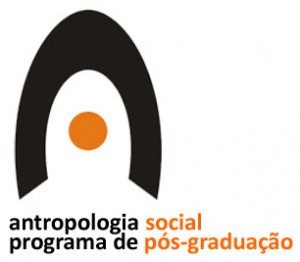An Erotics of Time
Toward the Cross-Cultural Study of Temporal Experience
DOI:
https://doi.org/10.52426/rau.v9i2(suplemento).215Palavras-chave:
time, temporal experience, agency, ethnography, cultural diversityResumo
Research in anthropology and sociology has focused on the social organization of time and time reckoning. There is, consequently, an emphasis on cross-cultural differences in the meaning of time. This line of inquiry neglects variation in the perceived passage of time as well as temporal agency. Following a review of extant research in anthropology, I call for cross-cultural research on the perception of time or subjective temporal experience. Using a theoretical framework for the study of social interaction, I point to scattered evidence for cross-cultural uniformity in the perception of time and temporal agency. I conclude with a call for further investigation of these topics.
Referências
ALVERSON, Hoyt. 1994. Semantics and Experience: Universal Metaphors of Time in English, Mandarin, Hindi, and Sesotho. Baltimore: Johns Hopkins University Press.
AUYERO, Javier. 2011. “Patients of the State: An Ethnographic Account of Poor People’s Waiting”. Latin American Research Review, XLVI: 5-29.
BEIDELMAN, T.O. 1963. “Kaguru Time Reckoning: An Aspect of the Cosmology of an East African People”. Southwestern Journal of Anthropology, XIX: 9-20.
BENGTSSON, Tea Torbenfeldt. 2012. “Boredom and Action – Experiences from Youth Confinement”. Journal of Contemporary Ethnography, XLI: 526-553.
BERGER, Peter L. & LUCKMANN, Thomas. 1966. The Social Construction of Reality. New York: Anchor.
BLOCH, Maurice. 1977. “The Past and the Present in the Present”. Man, XII: 278-292.
BOHANNAN, Paul. 1953. “Concepts of Time Among the Tiv of Nigeria”. Southwestern Journal of Anthropology, IX: 251-262.
CALVINO, Italo. 1969. t zero (translated by William Weaver). San Diego: Harcourt, Brace Jovanovich.
CHEN, M. Keith. 2013. “The Effect of Language on Economic Behavior: Evidence from Savings Rates, Health Behaviors, and Retirement Assets”. American Economic Review, CIII: 690-731.
CHRISTENSEN, Dorthe Refslund & SANDVIK, Kjetil. 2013. “Sharing Death: Conceptions of Time at a Danish Online Memorial Site”. In: D. F. Christensen & R. Willerslev (eds.), Taming Time, Timing Death: Social Technologies and Ritual. Surrey: Ashgate. pp. 99-118.
CHRISTENSEN, Dorthe Refslund & WILLERSLEV, Rane (eds.). 2013. Taming Time, Timing Death: Social Technologies and Ritual. Surrey: Ashgate.
DALSGÅRD, Anne Line. 2004. Matters of Life and Longing: Female Sterilisation in Northeast Brazil. Copenhagen: Museum Tusculanum Press.
DALSGÅRD, Anne Line; FREDERIKSEN, Martin Demant; HØJLUND, Susanne & and MEINERT, Lotte (eds.). 2014. Ethnographies of Youth and Temporality: Time Objectified. Philadelphia: Temple University Press.
DENZIN, Norman K. 1969. “Symbolic Interactionism and Ethnomethodology: A Proposed Synthesis”. American Sociological Review, XXXIV: 922-934.
DEUTSCHER, Guy. 2010. Through the Language Glass: Why the World Looks Different in Other Languages. New York: Metropolitan Books.
DEVINE, Elizabeth & BRAGANTI, Nancy L. 2000. The Traveler’s Guide to Latin American Customs and Manners. New York: St. Martin’s.
DURKHEIM, Emile. [1915] 1965. The Elementary Forms of the Religious Life. New York: Free Press.
EVANS, Vyvyan. 2014. The Language Myth: Why Language Is Not an Instinct. Cambridge: Cambridge University Press.
EVANS-PRITCHARD, E.E. 1939. “Nuer Time-Reckoning”. Africa, XII: 189-216.
FLAHERTY, Michael G. 1999. A Watched Pot: How We Experience Time. New York: New York University Press.
______. 2011. The Textures of Time: Agency and Temporal Experience. Philadelphia: Temple University Press.
FLAHERTY, Michael G.; FREIDIN, Betina & SAUTU, Ruth. 2005. “Variation in the Perceived Passage of Time: A Cross-National Study”. Social Psychology Quarterly, LXVIII: 400-410.
FREDERIKSEN, Martin Demant. 2013. Young Men, Time, and Boredom in the Republic of Georgia. Philadephia: Temple University Press.
GARFINKEL, Harold. 1967. Studies in Ethnomethodology. Englewood Cliffs, NJ: Prentice-Hall.
GEERTZ, Clifford. 1973. The Interpretation of Cultures. New York: Basic Books.
GIDDENS, Anthony. 1979. Central Problems in Social Theory: Action, Structure and Contradiction in Social Analysis. Berkeley: University of California Press.
GIVENS, Douglas R. 1977. An Analysis of Navajo Temporality. Lanham, MD: University Press of America.
GOFFMAN, Erving. 1959. The Presentation of Self in Everyday Life. Garden City, NY: Anchor.
______. 1967. Interaction Ritual. Garden City, NY: Anchor.
HALLOWELL, A. Irving. 1937. “Temporal Orientation in Western Civilization and in a Pre-Literate Society”. American Anthropologist, XXXIX: 647-670.
IUTCOVICH, Mark; BABITT, Charles E. & IUCOVICH, Joyce. 1979. “Time Perception: A Case Study of a Developing Nation”. Sociological Focus, XII:71-85.
JACOT DE BOINOD, Adam. 2006. The Meaning of Tingo and Other Extraordinary Words from Around the World. New York: Penguin.
JAMES, William. 1890. The Principles of Psychology, vol. 1. New York: Dover.
KLUCKHOHN, Clyde & MURRAY, Henry A. 1959. “Personality Formation: The Determinants”. In: C. Kluckhohn; H. A. Murray & D. M. Schneider (eds.), Nature, Society, and Culture, 2d ed. New York: Alfred A. Knopf. pp. 53-67.
KOESTLER, Arthur. 1960. Dialogue with Death. New York: Macmillan.
LAST, Murray. 2013. “Dying on Time: Cultures of Death and Time in Muslim Northern Nigeria”. In: D. F. Christensen & R. Willerslev (eds.), Taming Time, Timing Death: Social Technologies and Ritual. Surrey: Ashgate. pp. 247-264.
LEVINE, Robert. 1997. A Geography of Time. New York: Basic Books.
LÉVI-STRAUSS, Claude. [1962] 1966. The Savage Mind. Chicago: University of Chicago Press.
______. [1964] 1969. The Raw and the Cooked: Introduction to a Science of Mythology. New York: Harper & Row.
MEAD, George Herbert. 1934. Mind, Self, and Society. Chicago: University of Chicago Press.
MEAD, Margaret. [1951] 1966. Soviet Attitudes Toward Authority: An Interdisciplinary Approach to Problems of Soviet Character. New York: Schocken Books.
MEINERT, Lotte & SCHNEIDERMANN, Nanna. 2014. “Making a Name: Young Musicians in Uganda Working on the Future”. In: A. L. Dalsgård; M. D. Frederiksen; S. Højlund, & L. Meinert (eds.), Ethnographies of Youth and Temporality: Time Objectified. Philadelphia: Temple University Press. pp. 153-174.
MENAGHAN, Elizabeth G. 1995. “Social Psychology: Interpreting the Data”. Social Psychology Quarterly, LVIII:321-325.
NILSSON, Martin P. 1920. Primitive Time-Reckoning. Lund: C.W.K. Gleerup.
ORTIZ, Alfonso. 1969. The Tewa World: Space, Time, Being, and Becoming in a Pueblo Society. Chicago: University of Chicago Press.
SCHLISSEL, Lillian. 1982. Women’s Diaries of the Westward Journey. New York: Schocken Books.
SCHULZ, Amy; KNOKI, Faye & KNOKI-WILSON, Ursula. 1999. “How Would You Write About That? Identity, Language, and Knowledge in the Narratives of Two Navajo Women”. In: M. Romero & A. J. Stewart (eds.), Women’s Untold Stories: Breaking Silence, Talking Back, Voicing Complexity. New York: Routledge. pp. 174-191.
SCHUTZ, Alfred. 1962. Collected Papers, vol. 1, The Problem of Social Reality. The Hague: Nijhoff.
SONTAG, Susan. 1964. Against Interpretation. New York: Delta.
THOMPSON, E.P. 1967. “Time, Work-Discipline, and Industrial Capitalism”. Past and Present, XXXVIII:56-97.
WARD, Geoffrey C. 1996. The West: An Illustrated History. Boston: Little, Brown.
WHORF, Benjamin Lee. 1956. Language, Thought, and Reality. Cambridge, MA: M.I.T. Press.
YAO, Ping. 1993. “Power, Resistance, and Accommodation: Affect in a Women’s Writing System in Jiangyong, China”. Unpublished manuscript, Department of Anthropology, University of Illinois at Urbana-Champaign.
Downloads
Publicado
Como Citar
Edição
Seção
Licença
Copyright (c) 2017 Revista de Antropologia da UFSCar

Este trabalho está licenciado sob uma licença Creative Commons Attribution-ShareAlike 4.0 International License.





